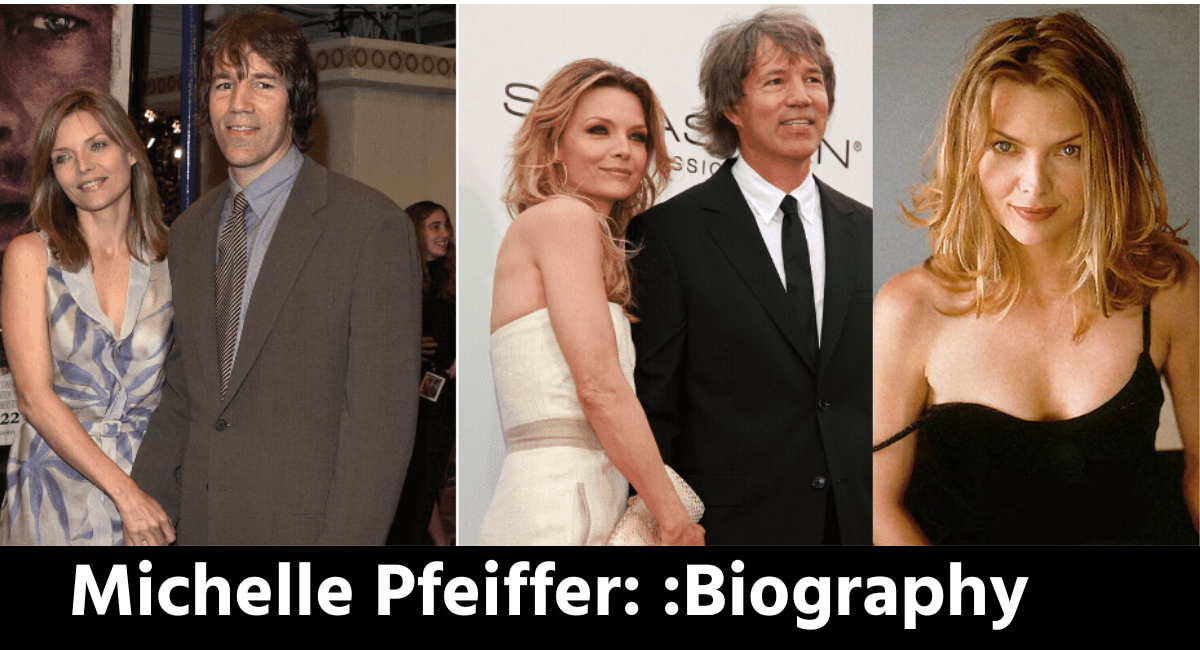Michelle Marie Pfeiffer born April 29, 1958 is an American actress. Prolific in film for over four decades, she became one of Hollywood’s most bankable stars during the 1980s and 1990s, as well as one of the era’s defining sex symbols. She is known for pursuing a wide range of character roles that span multiple genres. The recipient of various accolades, she has received a Golden Globe Award and a British Academy Film Award, in addition to nominations for three Academy Awards and a Primetime Emmy Award. In 2007, she was awarded a motion picture star on theMichelle Pfeiffer Michelle Pfeiffer Hollywood Walk of Fame
Michelle Pfeiffer :Facts
- Born : PfeifferApril 29, 1958 (age 65),Santa Ana, California, U.S.
- Occupation: Actress
- Years active 1978–presentWorks Filmography,Spouses:Peter Horton
- Children :2
- Relatives :Dedee Pfeiffer (sister)
Early life
Michelle Marie Pfeiffer was born on April 29, 1958, in Santa Ana, California, the second of four children of Donna Jean (née Taverna), a housewife, and Richard Pfeiffer, an air-conditioning contractor.She has an older brother, Rick, and two younger sisters, Dedeeand Lori.Her parents were both originally from North Dakota. Her paternal grandfather was of German ancestry and herMichelle Pfeiffer paternal grandmother was of English, Welsh, French, Irish, and Dutch descent, while her maternal grandfather was of Swiss-German-Italian descent and her maternal grandmother of Swedish ancestry. The family moved to Midway City, another Orange County community around seven miles (11 km) away, where Pfeiffer spent her early years.
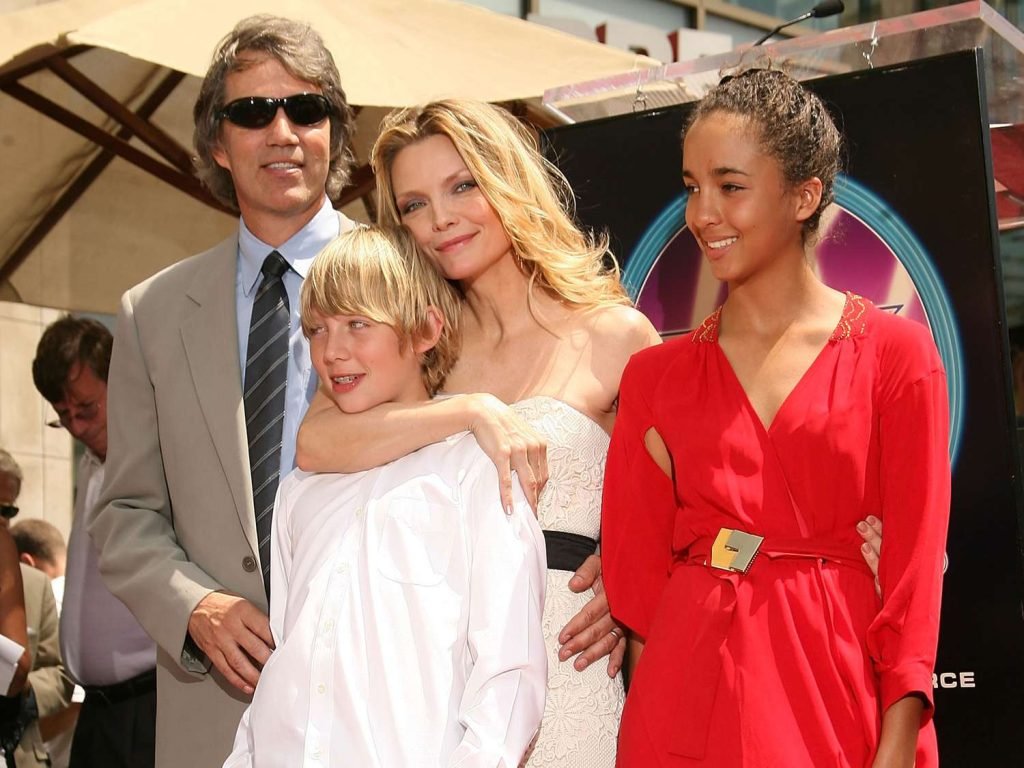
Pfeiffer attended Fountain Valley High School, graduating in 1976. She worked as a check-out girl at Vons supermarket, and attended Golden West College where she was a member of Alpha Delta Pi sorority. After a short stint training to be a court stenographer, she decided upon an acting career.She won the Miss Orange County beauty pageant in 1978, and participated in the Miss California contest the same year, finishing in sixth place.Following her participation in these pageants, she acquired an acting agent and began to audition for television and films.
Personal life
Soon after coming to Hollywood at age 20, Pfeiffer was taken in by a seemingly friendly couple who ran a metaphysics and vegetarian cult. They helped her to cease drinking, smoking and doing drugs. Over time, they took control of her entire life. Much of herMichelle Pfeiffer money went to the group. “I was brainwashed,” she said, “I gave them an enormous amount of money.”
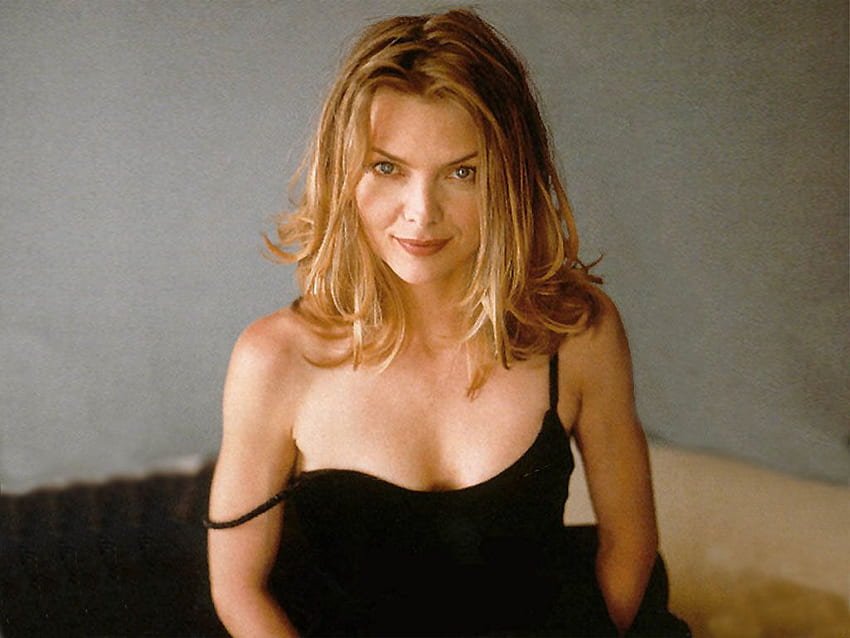
At an acting class taught by Milton Katselas in Los Angeles, she met fellow budding actor Peter Horton, and they began dating. They married in Santa Monica in 1981, and it was on their honeymoon that she discovered she had won the lead role in Grease 2.ool girlfriend of an alcoholic student (Val Kilmer); and in 1987, the real-life couple played an on-screen couple in the ‘Hospital’ segment of John Landis’s comedy skit compilation Amazon Women on the Moon.
Career
Pfeiffer made her acting debut in 1978, in a one-episode appearance of Fantasy Island. Other roles on television series followed, including Delta House, CHiPs, Enos and B.A.D. Cats, as well as in the made-for-CBS film The Solitary Man (1979).[13] Pfeiffer transitioned to film with the comedy The Hollywood Knights (1980), with Tony Danza, appearing as high school sweethearts. She subsequently played supporting roles in Falling in Love Again (1980) with Susannah York and Charlie Chan and the Curse of the Dragon Queen (1981), none of which met with much critical or box office success. She appeared in a television commercial for Lux soap,and took acting lessons at the Beverly Hills Playhouse,before appearing in three 1981 television movies – Callie and Son, with Lindsay Wagner, The Children Nobody Wanted and Splendor in the Grass.
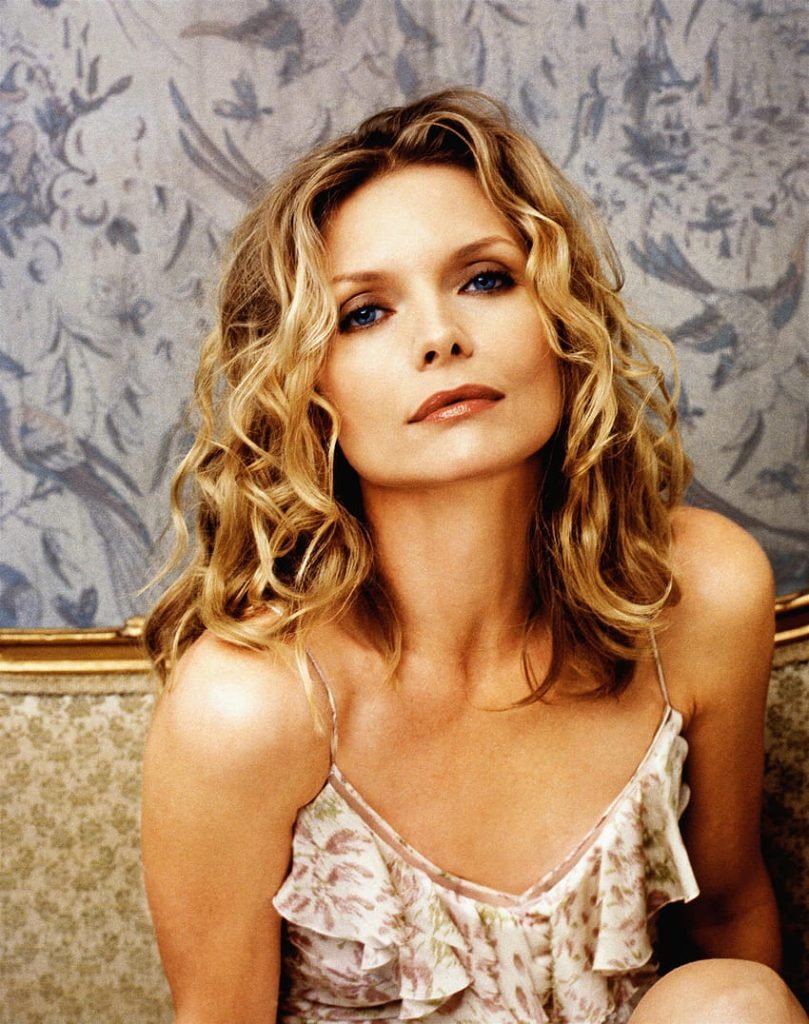
Pfeiffer obtained her first major film role as the female lead in Grease 2 (1982), the sequel to the smash-hit musical film Grease (1978)With only a few television roles and small film appearances, the 23-year-old Pfeiffer was an unknown actress when she attended the casting call audition for the role, but according to director Patricia Birch, she won the part because she “has a quirky quality you don’t expect”.The film was a critical and commercial failure, but The New York Times remarked: “[A]lthough she is a relative screen newcomer, Miss Pfeiffer manages to look much more insouciant and comfortable than anyone else in the cast.” Despite escaping the critical mauling, her agent later admitted that her association with the film meant that “she couldn’t get any jobs. Nobody wanted to hire her.” On her early screen roles, she asserted: “I needed to learn how to act … in the meantime, I was playing bimbos and cashing in on my looks.
Director Brian De Palma,Michelle Pfeiffer having seen Grease 2, refused to audition Pfeiffer for Scarface (1983), but relented at the insistence of Martin Bregman, the film’s producer. She was cast as cocaine-addicted trophy wife Elvira Hancock. The film was considered excessively violent by most critics, but became a commercial hit and gained a large cult following in subsequent years. Pfeiffer received positive reviews for her supporting turn; Richard Corliss of Time Magazine wrote, “most of the large cast is fine: Michelle Pfeiffer is better …”while Dominick Dunne, in an article for Vanity Fair titled “Blonde Ambition”, wrote, “he is on the verge of stardom. In the parlance of the industry, she is hot.
Acting style and reception
Pfeiffer has never received formal acting training, expressing that she sometimes feels fraudulent as an actor due to her lack of conventional schooling. Instead, she credits director Milton Katselas with teaching her to differentiate between how an actor and their character would behave during the same scene. Vulture.com’s Angelica Jade Bastién said Pfeiffer’s talents dispel any argument that untrained actors are less capable than their trained peers.Michelle Pfeiffer In 1992, Rolling Stone’s Gerri Hirshey described Pfeiffer as a character actress comfortable wearing unflattering costumes, while film critics have described her as “a character actress in a screen siren’s body” Bastién profiled her as “a character actress reluctantly placed in Hollywood’s lineage of blonde bombshells”. Journalist James Kaplan reported that some critics believe Pfeiffer has sold herself short by choosing character roles that emphasize her talent over her beauty.Drawn towards “imperfect” womenPfeiffer claims she rarely accepts glamorous roles because she finds few of them compellingShe also prefers dramatic over comedic roles, describing the latter as more challengingOften commended for masking her true emotions when in character, Pfeiffer frequently uses this trait advantageously in period films, a trademark genre of hers. She has described acting as a “sadomasochistic” profession due to how “brutal” she finds the process at times.
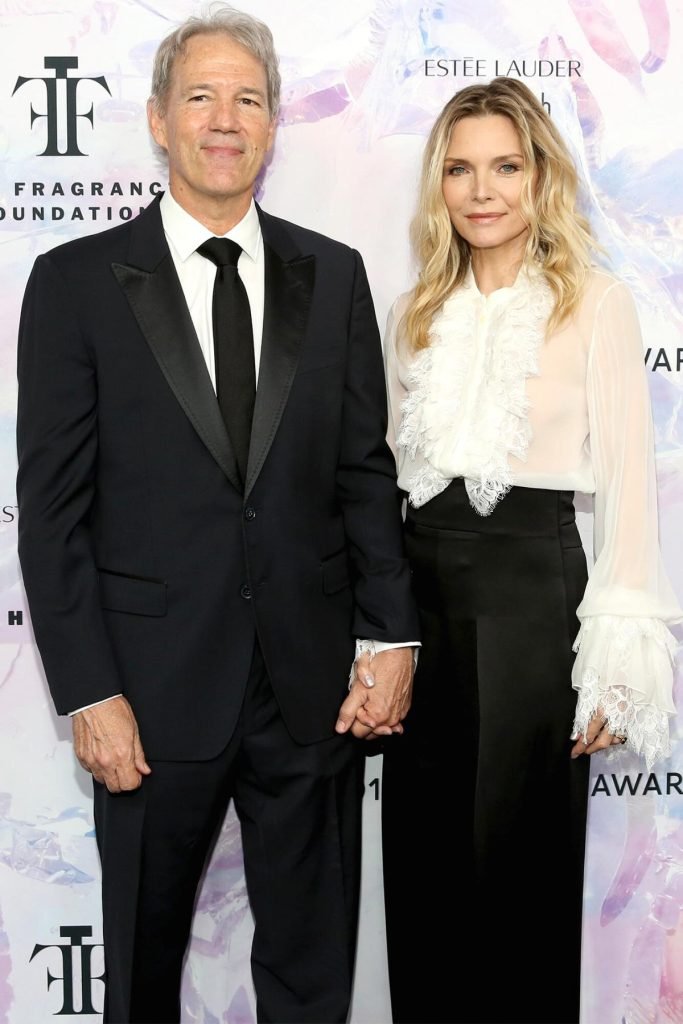
During the 1980s, Pfeiffer typically played smart, funny, and independent women, before pursuing a wider range of roles during the 1990s.According to Rachel Syme of The New Yorker, such characters were often ditzy, wily, high-femme, high-maintenance, and scrappy. Early in her career, Pfeifer typically played relatable working class women, aside from the occasional upper class character.Film critic Peter Bradshaw reflected that “She blazed a trail as gangsters’Michelle Pfeiffer Michelle Pfeiffer molls and slinky lounge acts” before returning from hiatus to play witches, comic turns, and grand dames. Pfeiffer admitted that she enjoys playing evil and “slightly trashy” women. In a 2021 profile, Lynn Hirschberg of W said Pfeiffer’s finest performances involve emotionally conflicted women, finding that she “has a way of pitting her characters’ wit and self-awareness against their flaws and trauma” Adam Platt of New Woman and journalist Bilge Ebiri agreed that Pfeiffer often plays emotionally detached women. Backstage contributor Manuel Betancourt observed parallels between Pfeiffer’s roles and her own determination to subvert expectations,with the actress confirming that she searches new projects for relatable parallels between their characters’ emotions and her own.However, Town & Country senior editor Adam Rathe finds Pfeiffer dissimilar to most characters she plays. Known to be highly selective, IndieWire contributor Kate Erbland believes Pfeiffer carefully chooses unconventional roles to avoid being typecast,a practice film critic Michael Sragow defended.However, Michelle Pfeiffer Pfeiffer herself claims to not know what her ideal type is.[198] Pfeiffer’s colleagues believe she is extremely committed, competent, and prepared when it comes to her work. In addition to refusing to watch her own performances, Pfeiffer does not retain scripts, reviews, news articles, or magazine covers about her career

